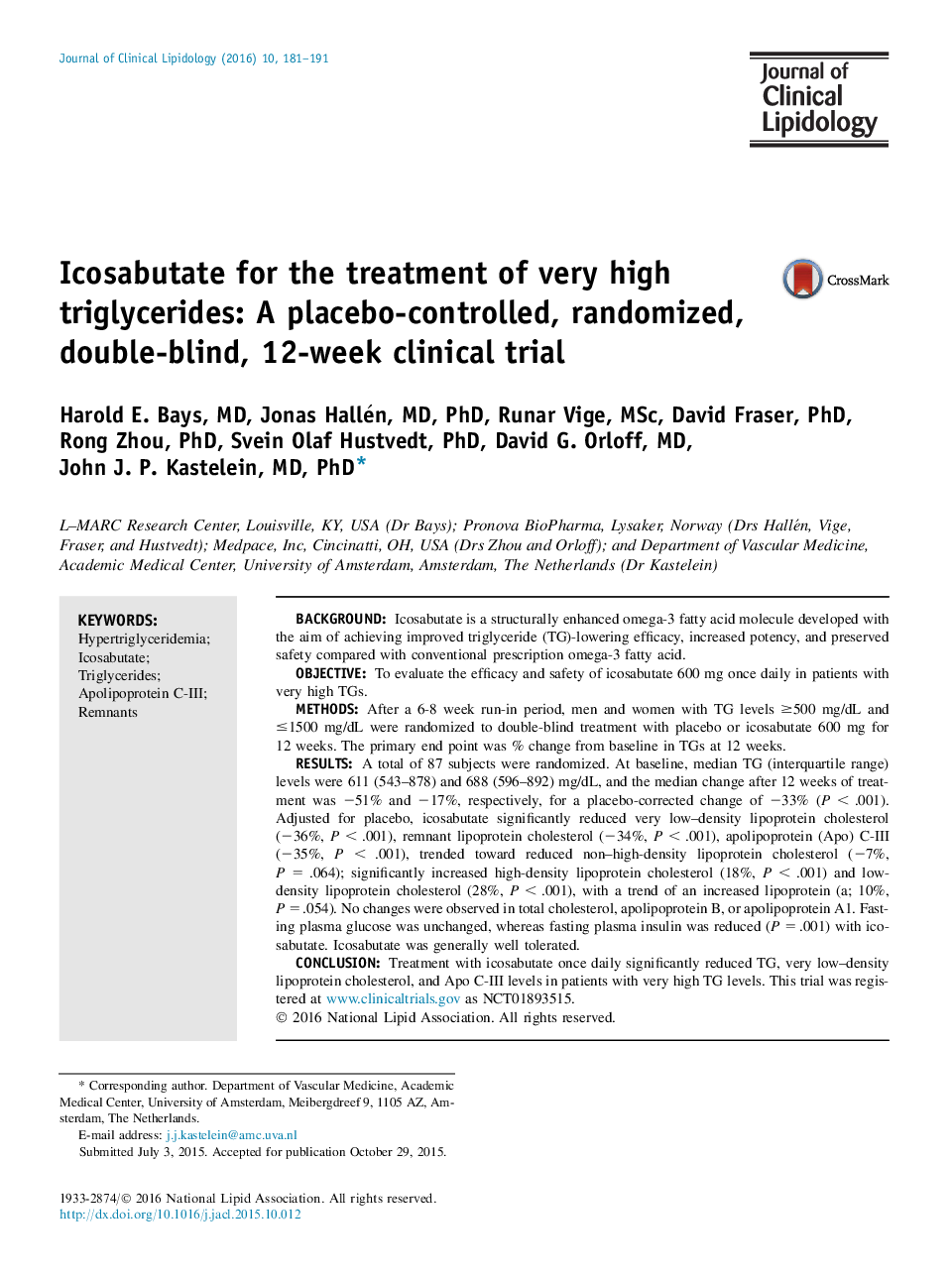| کد مقاله | کد نشریه | سال انتشار | مقاله انگلیسی | نسخه تمام متن |
|---|---|---|---|---|
| 5985202 | 1178771 | 2016 | 13 صفحه PDF | دانلود رایگان |

- Icosabutate is a first-in-class structurally enhanced fatty acid.
- Icosabutate was tested in hypertriglyceridemic subjects.
- Triglycerides were significantly reduced vs placebo.
- Icosabutate appeared safe and well tolerated.
BackgroundIcosabutate is a structurally enhanced omega-3 fatty acid molecule developed with the aim of achieving improved triglyceride (TG)-lowering efficacy, increased potency, and preserved safety compared with conventional prescription omega-3 fatty acid.ObjectiveTo evaluate the efficacy and safety of icosabutate 600 mg once daily in patients with very high TGs.MethodsAfter a 6-8 week run-in period, men and women with TG levels â¥500 mg/dL and â¤1500 mg/dL were randomized to double-blind treatment with placebo or icosabutate 600 mg for 12 weeks. The primary end point was % change from baseline in TGs at 12 weeks.ResultsA total of 87 subjects were randomized. At baseline, median TG (interquartile range) levels were 611 (543-878) and 688 (596-892) mg/dL, and the median change after 12 weeks of treatment was â51% and â17%, respectively, for a placebo-corrected change of â33% (P < .001). Adjusted for placebo, icosabutate significantly reduced very low-density lipoprotein cholesterol (â36%, P < .001), remnant lipoprotein cholesterol (â34%, P < .001), apolipoprotein (Apo) C-III (â35%, P < .001), trended toward reduced non-high-density lipoprotein cholesterol (â7%, P = .064); significantly increased high-density lipoprotein cholesterol (18%, P < .001) and low-density lipoprotein cholesterol (28%, P < .001), with a trend of an increased lipoprotein (a; 10%, P = .054). No changes were observed in total cholesterol, apolipoprotein B, or apolipoprotein A1. Fasting plasma glucose was unchanged, whereas fasting plasma insulin was reduced (P = .001) with icosabutate. Icosabutate was generally well tolerated.ConclusionTreatment with icosabutate once daily significantly reduced TG, very low-density lipoprotein cholesterol, and Apo C-III levels in patients with very high TG levels. This trial was registered at www.clinicaltrials.gov as NCT01893515.
Journal: Journal of Clinical Lipidology - Volume 10, Issue 1, JanuaryâFebruary 2016, Pages 181-191.e2